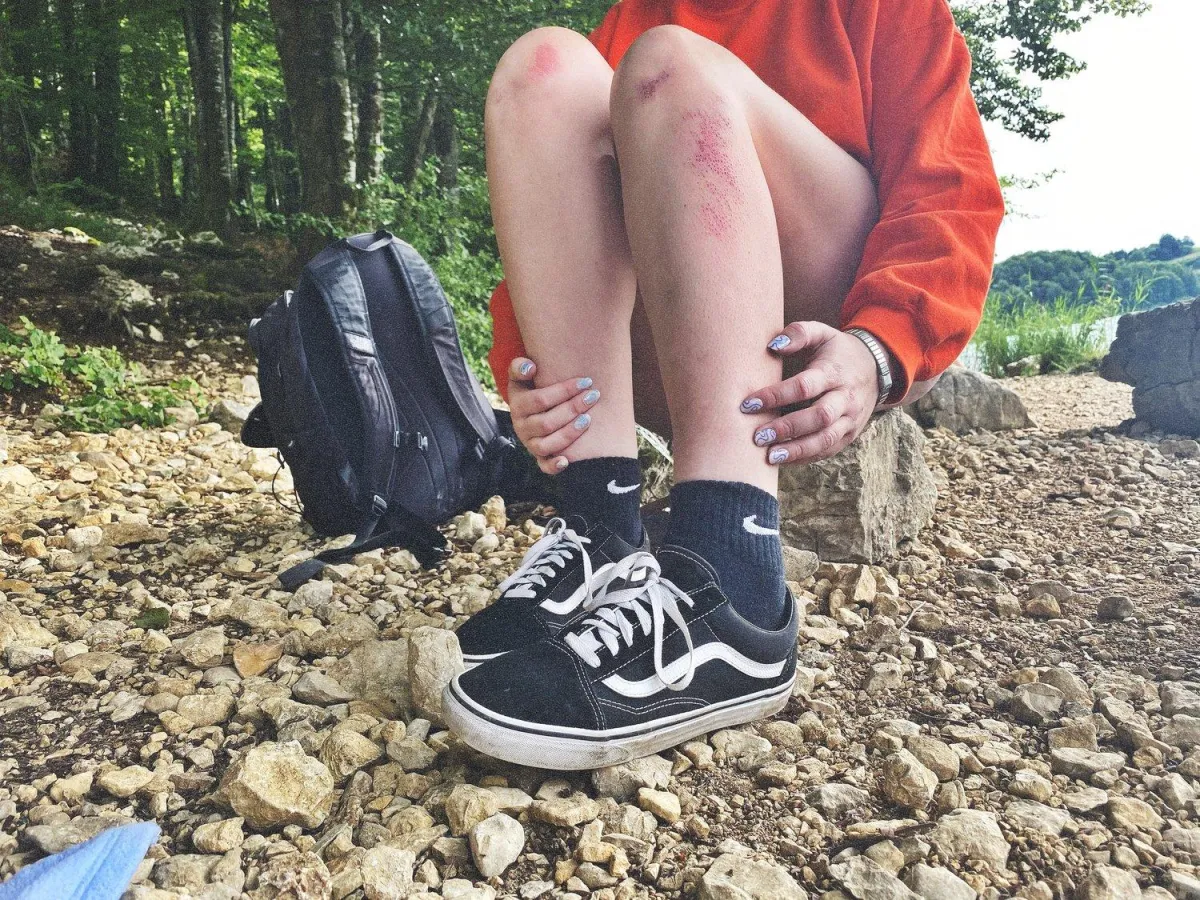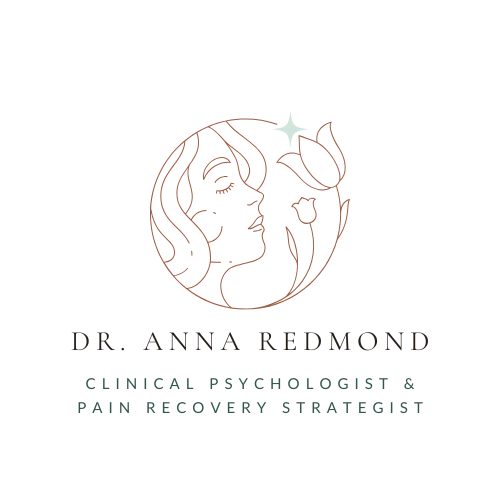Welcome to the Education Hub
Science-based tools, insights, and resources to help you understand your pain and retrain your body’s protective systems with confidence.
This is your space to learn, explore, and build confidence in understanding chronic pain.
Here you’ll find science-backed insights, podcast interviews, and expert guides designed to help you retrain your brain, calm your body, and live more fully, one informed step at a time.
Listen and Learn
Chronic Pain: It's Not In Your Head
Have you ever been told that your pain is all in your head? It's more complicated than that when we consider how it affects our complete body and mind. We talked all about this on the On Call Empath Podcast.
Chat with a Pain Psychologist
I sat down with physical therapist, Dr. Alissa Wolfe, for a chat about why chronic pain education is so important but so hard to find in the health care system.
Pain and the Body's Threat Detection System
Dr. Redmond brings much needed clarity on the brain science behind pain, the factors that contribute to whether or not pain becomes chronic, and how the nervous system is intimately involved.
How To Stop Chronic Pain
Kim Gross and guest Dr. Anna Redmond discuss chronic pain management, specifically catering to high-achieving women. Dr. Redmond emphasizes the connection between chronic pain and perfectionistic behaviors, explaining how focusing on values rather than pain can significantly improve one's quality of life.
Where Does Pain Come From
Dr. Derrick Hines sits with Chronic Pain Educator, Dr. Anna Redmond to discuss the underlying reason for pain. Tune in to learn what types of pain exist, how your mind affects the way you feel pain, how to stop pain before it becomes chronic, and more!

How to Deal With Chronic Pain
In this episode of A Healthy Push podcast, Shannon Jackson chats with Dr. Anna Redmond, a chronic pain educator and trained pain psychologist. We sat down for a conversation on the relationship between chronic pain and anxiety.
Explore the Blog
Science-backed lessons, practical strategies, and real-world stories to help you understand and retrain pain.

Chronic pain is like… a scratch on the leg.
Pain is affected by our past experiences.
We know that pain is a subjective experience. While it is related to physiological processes, the way that we react to a new episode of pain is shaped and influenced so much by previous experiences.
Like many things with pain, this shaping of our reactions by previous experiences is based on an evolutionary need to survive. If we did not learn from experience, it would be difficult to maintain good health, cope with pain, and move forward in different areas of our lives.
The experience that each of us has with pain and our expression of it is a biopsychosocial phenomenon. Specific to this journal entry, I want to point out that the experience and expression of pain is a product of the sensory experience, the personal background of the person experiencing it, the interpersonal context, and the meaning that it has for the individual.
A really great study that talks about this concluded that “meaning affects the experience a noxious stimulus evokes, and that warning and visual attention moderate the effects of meaning when the meaning is associated with tissue-damage. Different dimensions of the stimulus' context can have differential effects on sensory-discriminative and affective-emotional components of pain” (Moseley & Arntz, 2007).
There’s also a really great video of Lorimer Moseley describing how context impacts a person’s pain experience, using the personal example of a snake bite. I describe a similar scenario below.
Consider this analogy:
Pain is like a scratch on the leg.
Imagine that you are on a hike and feel a scratch on your leg. Would you stop? Probably not. You’d keep going because experience tells you that a scratch from a twig really isn’t a big deal. But what would happen if you discovered that the scratch was actually a poisonous snake bite and very serious? I bet your brain would sound the alarm.
Imagine again that you are on a future hike and feel a small scratch on your leg again. You’d probably freak out, assume it was a snake bite, and experience pain. Even if the second scratch was small, just from a twig, your brain would make sure that you didn’t ignore it this time (Moseley, 2007).
So what does this all tell us?
Pain relies on context.
Another example: The same minor injury to the finger will cause more pain for a professional violinist than a professional dancer. Why? Consider who the injury poses a greater threat to - the violinist’s. Consider how this injury would impact their livelihood and identity (Butler & Moseley, Explain Pain).
How has context impacted your own pain, either from the beginning or throughout your pain journey?
Education provides the power to take the next step in managing your pain. You want to do the things you enjoy (or even basic daily activities) without flaring up your pain. For a limited time, you can grab my free video tutorial to get you started:
3 Simple Steps to a Balanced Day... Without the Flare-Ups.
This free video tutorial is dedicated to helping women with pain begin to find confidence to return to the moments, activities, and people they love the most.
I hope you’re enjoying these analogies. I’d love to hear yours! Send them through instagram or email me at anna@drannaredmond.com.
Want to Go Deeper?
Start with My Top Pain Recovery Reads.
These are the science-based, mind-body reads I most often recommend to my clients.
Each one offers a powerful perspective on the brain, the body, and the journey back to safety and vitality.
Free education on my Instagram Account
Don't forget to send me a DM, introduce yourself, and tell me what your biggest pain struggle is right now!
© 2024 | Anna Redmond, LLC | drannaredmond.com
